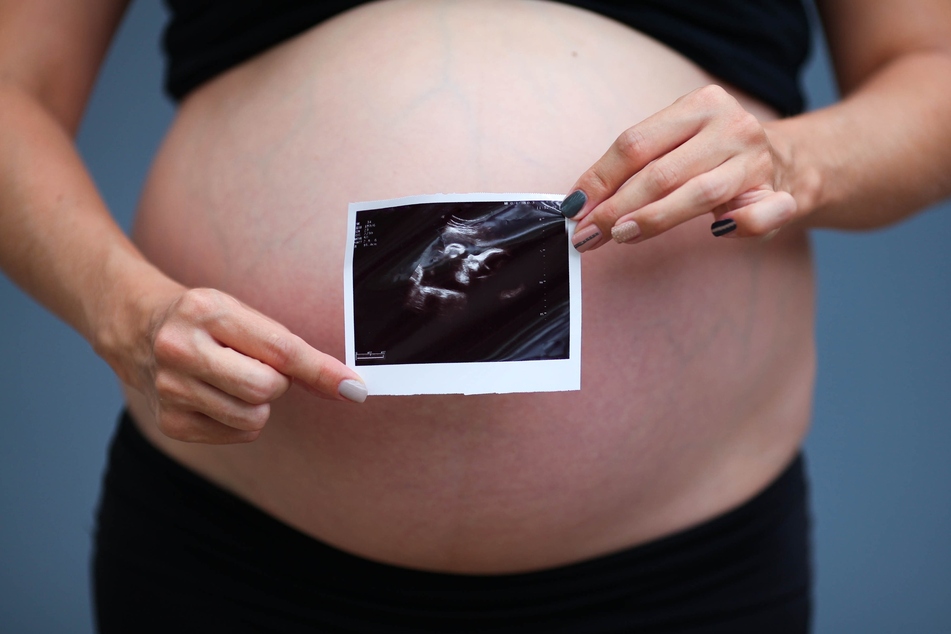Morning sickness? Big discoveries may help with pregnancy
London, UK - Researchers say they have identified a hormone they believe is the culprit behind morning sickness, and that building up a tolerance prior to getting pregnant could prevent its common symptoms.

Pregnant people can rejoice: More effective treatments for severe cases of morning sickness could be on the horizon.
Researchers have discovered why some pregnant people suffer more from its nausea and vomiting than others.
The findings, published in Nature, could lead to better treatments, according to co-author Dr. Marlena Fejzo, a researcher at the University of Southern California.
Unveiling new research, medical professionals from the UK, US, and Sri Lanka said morning sickness is caused by exposure to the hormone GDF15, which is produced by babies growing in the womb.
The severity of illness appears to be linked to how sensitive the mother is to the hormone.
It is hoped the discovery could help treat severe cases of the condition, hyperemesis gravidarum (HG), which and can sometimes result in hospitalization, in an "effective and safe way."
Morning sickness severity linked to hormone tolerance

Previous studies have suggested sickness and nausea in pregnancy could relate to GDF15 produced by the placenta, but researchers said the "full mechanistic understanding is lacking."
To better understand morning sickness, the team analyzed data from females in various studies. They found the level of nausea experienced during pregnancy related to the amount of GDF15 produced by the fetal part of the placenta.
The severity of morning sickness was linked to how much of the hormone the person had been exposed to prior to pregnancy.
"Most women who become pregnant will experience nausea and sickness at some point, and while this is not pleasant, for some women it can be much worse – they’ll become so sick they require treatment and even hospitalization," said Professor Stephen O’Rahilly, director of the Medical Research Council metabolic diseases unit at the University of Cambridge.
"We now know why: the baby growing in the womb is producing a hormone at levels the mother is not used to."
How to treat morning sickness
Most of the body's organs produce low levels of GDF15. A person with lower levels in their blood before pregnancy may be at a higher risk of developing severe morning sickness in pregnancy, known as HG, researchers said.
HG can lead to prolonged periods of vomiting, dehydration, and weight loss. Treatments include anti-sickness medicines and steroids, but some women may require hospitalization and intravenous fluids.
"The more sensitive she is to this hormone, the sicker she will become. Knowing this gives us a clue as to how we might prevent this from happening," Stephen added.
Can building up GDF15 hormone treat severe morning sickness=

Studies in which mice were exposed to high levels of GDF15 showed a loss of appetite, while mice given a long-acting form of GDF15 did not show the same symptoms when exposed to similar levels of the hormone.
"It also makes us more confident that preventing GDF15 from accessing its highly specific receptor in the mother’s brain will ultimately form the basis for an effective and safe way of treating this disorder," Stephen added.
The team said building up a tolerance prior to getting pregnant could prevent sickness.
Researchers also said females with the inherited blood disorder thalassemia, which causes higher levels of GDF15 outside of pregnancy, experienced little to no nausea or vomiting when pregnant.
"When I was pregnant, I became so ill that I could barely move without being sick. When I tried to find out why, I realized how little was known about my condition, despite pregnancy nausea being very common," Dr. Fejzo said.
"Hopefully, now that we understand the cause of hyperemesis gravidarum, we’re a step closer to developing effective treatments to stop other mothers going through what I and many other women have experienced."
Cover photo: 123rf/tiumentseva

